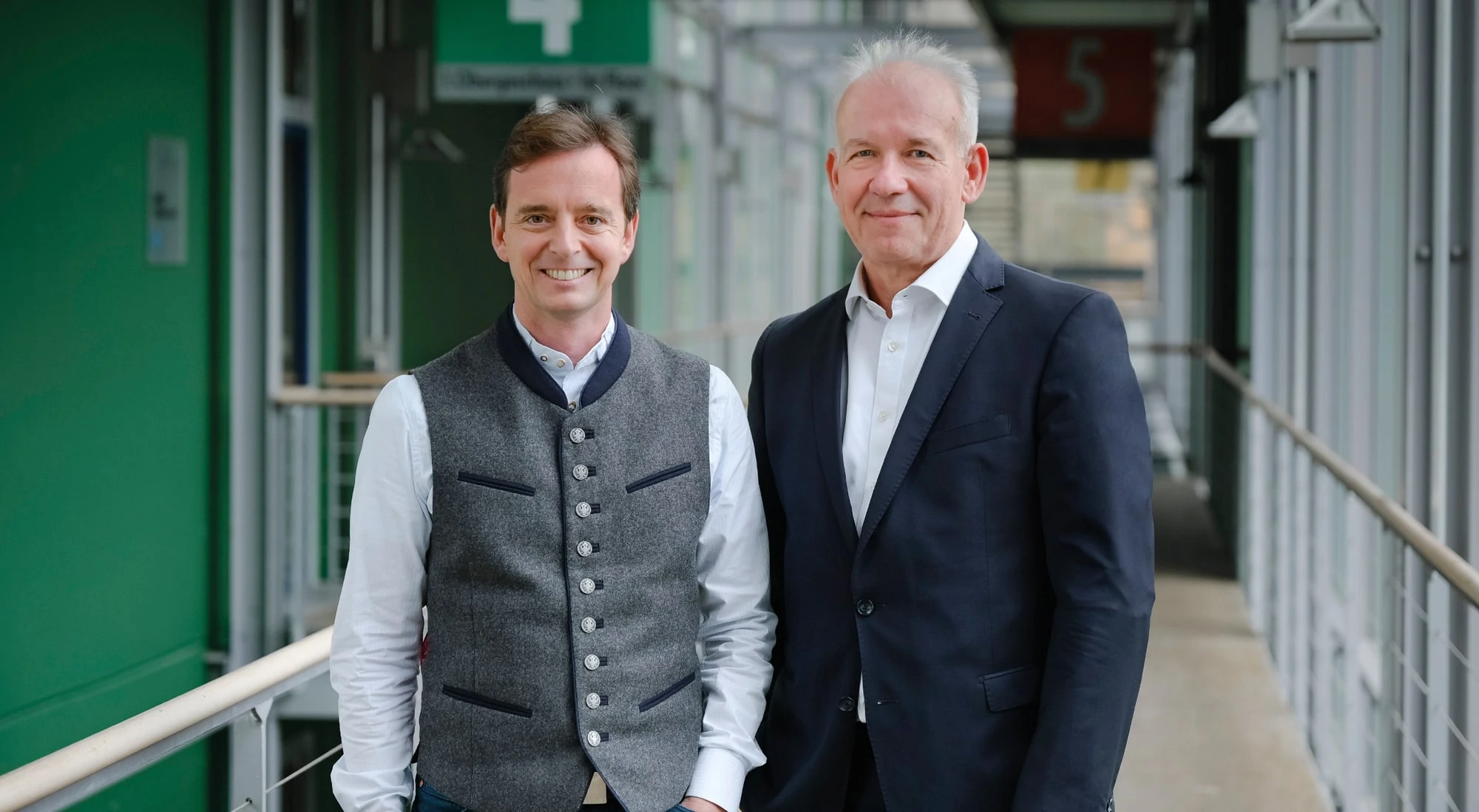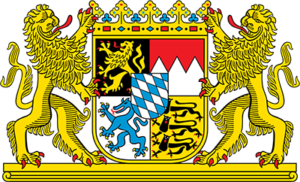Munich Biotech jewel aims for IPO
SIRION Biotech offers viral vector technologies for gene research worldwide
December 2019
Martinsried-based start-up SIRION Biotech is one of about five specialists worldwide that supports drug developers in their drive for the most innovative therapies with its vector technologies. Main focus currently are Parkinson, Alzheimer and ALS, a neurodegenerative disorder for which there exists no therapy so far. The company’s core competence is to develop and optimize vector technologies to enable more effective and financially reasonable treatments for millions of gene- and cell-therapy patients. Through large-scale research collaborations with US-based Denali Therapeutics, Acucela in Seattle/Tokyo as well as Orchard Therapeutics in England, SIRION will participate in a billion USD market. Susanne Simon interviewed founder and CEO Dr. Christian Thirion and the COO Dieter Lingelbach about their future strategic direction for the 12-year-old company.

© SIRION
Dr. Christian Thirion, Dieter Lingelbach, Managing Directors, SIRION Biotech GmbH (v.l.n.r.)
In dialog: Dr. Thirion, for which diseases does genetic engineering offer chances of recovery?
Dr. Thirion: There are about 8.000 diseases known to have a monogenetic cause and hundreds of clinical studies are under way trying to treat them. The most prominent diseases are genetic blindness (Retinitis pigmentosa), haemophilia, SMA and for example Alzheimer’s, Parkinson’s, metabolic diseases, neuromuscular diseases or muscle atrophy. Some of these diseases are inherited, or arise through spontaneous mutations.
In dialog: Please give me an idea of how viral vector technology works in practice.
Dr. Thirion: The idea is to “fix” genetic defects that cause disease. There is a blueprint in every cell telling it what proteins to express and how. When missing, such blueprint needs to be delivered into the cell or it is being corrected. The drug developers working with us have a thorough understanding of disease and how to conduct clinical studies. SIRION then develops the “shuttle” to deliver the “therapeutic construct” into the particular set of cells that is the missing genetic information, either directly or indirectly. Desired goal is a “one shot” therapy.
In dialog: How does such a “gene-shuttle” work?
Dr. thirion: We work with so-called adeno-associated viruses (AAV) of which we only utilize the outer protein shell, its capsid. The actual virus-gene-information is eliminated and replaced by genetic construct aimed at fixing the disease. The library of different mutated capsids can be selected through a process called artificial evolution to select a high performing mutant that will improve targeting of e.g. liver or lung cells. We are currently in close collaboration with Prof. Grimm of Heidelberg’s University Hospital, to develop AAV capsids that are about 10,000 times more efficient in delivering constructs into target cells than traditional methods and vectors. On the other hand, we are working on improving lentivirus applications. These vectors are mainly used in the field of immunotherapy. Certain tumors are not being recognized by the immune system. To bypass such protection, CAR- or TCR-T-cells of the human immune systems are being reprogrammed with the help of lentiviral vectors so that they recognize the tumor cells and fight them. In all these new technologies costs remain a huge challenge. Treatment costs per patient can reach into millions. Manufacturing of genetically modified cells is very expensive. Its unique focus enables SIRION to spearhead massive advances in manufacturing and downstream purifications. Our LentiBOOST® technology promises substantial progress through material savings and increasing efficiency, as well as associated production costs reductions for the using viral vectors by around a factor five to ten.
”The company is planning to more than triple its lab and office spaces short term.”
Dr. Christian Thirion, CEO, SIRION Biotech GmbH
In dialog : Which competitors are working in this market?
Dr. thirion : Worldwide only a handful of companies focus specifically on viral vector technologies like SIRION. This presents a strategic advantage as SIRION is not getting distracted by trying to conduct clinical studies on its own. Instead, it concentrates on the development of the most highly innovative viral vectors for its partners in clinical trials.
In dialog : Who are your most important collaboration partners?
Dr. thirion : Of critical importance are the US National Institutes of Health (NIH), Orchard Therapeutics in London, Denali Therapeutics in San Francisco and Acucela in Seattle and Tokio. In total, we are involved in 12 clinical programs. We started to work with Denali at the end of 2018. When our milestones are met, millions of patients suffering from Parkinson’s disease, Alzheimer’s disease and ALS would be offered novel treatments. Some other collaborations are confidential.
In dialog : How would you describe your current business model?
Dr. thirion : Three pillars. Traditionally, since 2007, we have provided viral vector materials for research use, meaning it is not for use in humans. Since 2015, we have been engaged in large scale development collaborations as discussed above. Since 2016 we have been granted licenses for human clinical application, which are the most value added in drug development. With new funding over double-digit million Euros SIRION does plan to increase its own value added in the drug development arena by entering selected preclinical projects. What helps are SIRION’s contacts with more than 200 of the world’s leading laboratories and its access to their knowledge regarding certain disease areas. For 2019, SIRION aims for revenues over 10 million Euro. Simply by participating in clinical and commercial successes of its development partners, SIRION expects a significant increase over the next 10 years.
In dialog : You have opened offices i n Paris and Boston; are you considering additional sites?
Dr. thirion : Japan is the world’s second largest pharmaceutical market and therefore important. Asia as well. Korea and Israel are also of interest. The company is planning to more than triple its lab and office spaces short term. Fitting work space is unfortunately hard to find, which is starting to impede our growth. Some political support to bolster the development of commercial facilities in the area of Martinsried-Neuried would certainly be most welcome.
”Worldwide only a handful of companies focus specifically on viral vector technologies like SIRION.”
Dr. Christian Thirion, CEO, SIRION Biotech GmbH
In dialog: What about funding such expansion?
Dr. Thirion: Our growth strategy requires outside funding of about 20 to 30 million Euros. Hence, an IPO is being considered as a serious option. There are talks with US investors ongoing. In the context of a highly recommendable seminar offered by Euronext the company was well received by about 10 Europe-based investment firms. It looks like they trust SIRION to become a ‘mid cap’ company near term.
In dialog: Are start-ups addressing gene therapy promising takeover candidates for Big Pharma?
Dr. Thirion: It has shown in the recent past: Novartis acquired Avexis for about 8.7 billion USD in 2018; Roche acquired Spark Therapeutics for 4.3 billion USD in February 2019. Spark has several developments in the pipeline, among others to treat hemophilia and blindness.
In dialog: Would you consider yourself a takeover candidate?
Dr. Thirion: Indeed, our early seed investors were initially aiming for a straight out exit to a strategic investor, be it from within or from outside this country. Developing an independently strong and mid-sized company with a base in Bavaria may also be a promising option.



